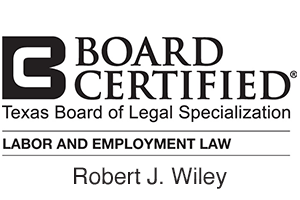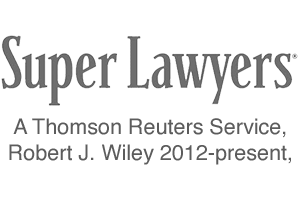in Austin, Texas
Religious Accommodations
Discrimination Attorneys for Workers in Austin and Beyond
Both Title VII of the Civil Rights Act of 1964 and Texas Labor Code Chapter 21 prohibit religious discrimination in Texas workplaces. It is discrimination for an employer to refuse to accommodate an employee’s sincerely held religious beliefs or practices, except when the accommodation presents an undue hardship. Religion is broadly defined, as are sincerely held religious practices and beliefs. At Austin Employment Lawyers, P.C., our Austin religious discrimination lawyers can evaluate the facts of your situation to determine whether you have a claim for discrimination based on your employer’s failure to provide a religious accommodation.
Types of Religious Accommodations
Title VII has a broad definition of religion. In addition to the organized religions of Christianity, Islam, Hinduism, and Buddhism, it includes any religious beliefs that are unusual, new, or only held by a small minority of people. While some practices are religious for one person, they are not for another. Religious practices are considered sincerely held by a worker even if they are not consistently observed or are different from the more common practices of the religion. However, personal references and philosophies are not considered religious beliefs.
The Texas Labor Code and Title VII apply to private employers with 15 or more employees, as well as local and state governmental entities, regardless of size. Covered employers must reasonably accommodate the religious practices of both existing and prospective employees.
Reasonable accommodations could involve alterations in dress practices or grooming practices. For example, if you are a Muslim employee who wears a hijab, and the policy at your work is not to cover your head, a covered employer should accommodate you unless it presents an undue hardship. Similarly, unless it presents an undue hardship, your employer should allow you to observe Ramadan by altering your shift or providing another suitable accommodation. In another example, if you are a Pentecostal Christian woman who does not wear pants, your employer should accommodate you unless there is an undue hardship presented by your wearing a skirt or dress.
Religious accommodations can also include flexible scheduling, job reassignment, lateral transfers, or job swaps based on religious beliefs or practices. For example, if you need to go to church on Good Friday at a time when you would usually be at work, your employer should permit the schedule change unless it presents an undue hardship. Similarly, if you need unpaid leave to attend a Native American ritual ceremony based on your beliefs, you should be provided that time, unless it presents an undue hardship. If you are a Muslim employee who needs a different break schedule to pray daily, your employer should provide it unless it presents an undue hardship.
It is common for large corporate employers these days to try to improve employee productivity or motivation through techniques with religious roots, such as yoga and meditation. An employer is supposed to accommodate an employee who provides notice that the program is inconsistent with their religious beliefs.
When can an employer successfully defend against an accommodation as an undue hardship? It depends on the facts. An employer can refuse to provide the accommodation if allowing the practice is unreasonably expensive, makes the workplace more dangerous, makes the workplace less efficient, affects other employees’ rights, or requires other workers to perform more than their fair share of potentially dangerous or burdensome tasks.
An undue hardship might be an accommodation that jeopardizes health, costs more than a minimal sum, or violates a seniority system. If schedule changes present an undue hardship, your employer is supposed to allow your coworkers to voluntarily swap their shifts in order to accommodate your religious belief or practice.
Some employers, when confronted with issues related to a hijab, yarmulke, or other alteration to dress or grooming based on religion, may argue that their customers prefer a different appearance. Customer preference or irritation by coworkers does not count as an undue hardship.
Retain a Knowledgeable Employment Attorney in Austin or Surrounding Cities
If you have been denied a religious accommodation in your workplace, you should consult an experienced employment discrimination attorney. Austin Employment Lawyers, P.C. also represents employees in cities such as Georgetown, Round Rock, Cedar Park, Pflugerville, Leander, Del Valle, Kyle, San Marcos, San Antonio, New Braunfels, and Fredericksburg. Call us at (512) 271-5527 or use our online form to set up an appointment with an Austin lawyer.







